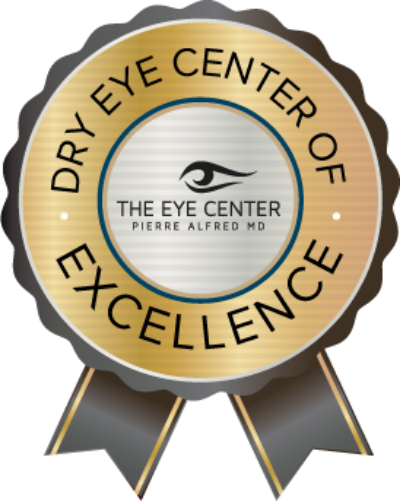
Advanced Cataract Surgery + Dry Eye Treatment for Best Results

Dry Eye Disease is estimated to affect over seven million Americans, and its prevalence tends to increase with age. Dry Eye Disease causes a variety of symptoms, such as stinging, burning, scratchiness, blurry vision, tired eyes, and even excessive tearing. Many cataract surgeons successfully remove the cataract but are surprised when patients are not satisfied with the result and complain that their eyes are still irritated, and their vision is still blurry.
What is the relationship between dry eye and cataract surgery?
- Existing dry eye can affect IOL calculations
- Existing dry can affect visual results, healing, and recovery time
- Even those with no history of dry eye commonly experience some dry eye symptoms after cataract surgery, and this can affect vision, recovery, and outcome
Dry Eye Center of Excellence

As a Dry Eye Center of Excellence, The Eye Center stays at the forefront of research and technology for the treatment and management of dry eye. Treatments are customized and often multi-faceted, incorporating various clinical therapies as well as at-home care. Our primary focus for our cataract patients is to optimize the corneal surface by treating any underlying conditions before surgery, and keeping it in the best possible shape after surgery for quick recovery and excellent results.
Recommended treatments may include:
- LipiFlow®
- BlephEx®
- TearCare
- IPL (Intense Pulsed Light)
- Platelet Rich Plasma (PRP) Tears
- LLT (Low-Level Light Therapy)
- Manual and Automated Thermal Expression
- At home drops and other treatment
Pierre Alfred, M.D., and the dry eye experts at The Eye Center will perform advanced diagnostic testing to determine if you have dry eye and will recommend a treatment plan prior to and after your cataract procedure. We’re here to answer any questions you may have and to provide you with the best possible visual results and a smooth recovery.
Call (978) 939-3128 to schedule an evaluation.
